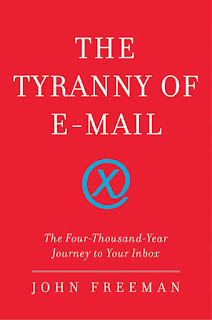On Monday evening, the cultural and literary venue
SPUI25 was full almost over capacity, with people waiting outside glimpsing through the glass door in the hope of spotting an empty seat. They were all there to listen to
Fethiye Çetin, lawyer, writer and human rights activist from Turkey, who was in Amsterdam for the launch of the Dutch translation of her book Anneannem (
My Grandmother, a Memoir published in English by Verso in 2008). She was just back from a visit to Australia as an invited guest of the
Melbourne Writers' Festival.
Fethiye Çetin was born in the small town of Maden in Turkey. In Anneannem she recounts the 1915 Armenian genocide through the story of her maternal grandmother. Taken from her family, Christian-born Heranus was rescued from death by a Muslim military man who brought her up as the Muslim girl Seher.
The evening was moderated
Bernard Bouwman journalist and former correspondent to the NRC and NOS in Turkey, with the support of
Hanneke van der Heijden, Dutch translator of the book, who has interpreted Ms Çetin’s words to an audience mixed with Turkish and Dutch speakers. “A small book with big themes” is how Bouwman started his presentation of My Grandmother, a Memoir. Not that the number of pages of a book should ever reflect its content, he was trying to emphasize on the importance of the subject matter. When asked why she has written this book, Fethiye Çetin explained that “whenever the Armenian issue is discussed in Turkey, facts and numbers are always given in a very cold manner. The name we should give to the issue is being discussed constantly; the number of death varies from 1.5 million to 400,000 and even dropped down to 50,000! I remember a columnist who wrote ‘where do they get these number from, it can’t be more than 300,000’ as if it were no big deal, as if we were talking about things and not people.” Ms Çetin’s story is but one step to fight towards this dehumanization. “Everybody can identify with the grandmother” says Çetin, and she describes the grandmother’s daily life, how she cooks or washes the laundry, things we can all relate to. When Anneannem came out in Turkey, heavy discussions were going on in the country about the massacres of 1915, but fortunately, Çetin hasn’t been trialed for her book. “I was very cautious not to use any censurable words in the book I have to admit” says the writer. One also has to remember that Çetin is first of all a lawyer, “but I was ready to go on trial if this would have happened, I prepared myself for it when writing.”

Reactions in Turkey were quite positive, because of the character of the grandmother but also because many people had a similar hidden story within their families “Many readers started to share their own stories with me, telling me about their own grandmothers being Armenians too.” But how does it feel to discover such a secret years after, as an adult (Çetin was told the story in the beginning of the 70’s)? “It used to be more difficult in the past” says Çetin, “but nowadays, more and more people want to research their family history.” The issue was silenced until not so long ago in Turkey, and getting information isn’t always easy. “Data isn’t accessible or ‘lost’ –some are said to have burnt.” This is why, Çetin says over and over again, it is essential to tell the stories, “we need to hear the stories of our grandparents and families.” However, we can do better in learning about Turkey’s historical past, and denial is one road we can’t take anymore. Among the reasons of this national policy of “forgetting” lies the nationalism built upon the creation of the Republic of Turkey in 1923. “The population is silenced and remains silent altogether, and that is something I’ve been trying to understand throughout the story too.”
When asked if she feels a victim of history, Fethiye Çetin responds with plain honesty, “my grandmother was a victim, but I am not. I feel responsible for these events of history. I am responsible for today’s denial of 1915.” And she adds, “when I learned about my family’s past, I felt liberated from the chains of nationalism. I looked around me and saw things differently.” Through this book, Fethiye Çetin wishes we build a better future, together: “If we want to laugh together” she says, “we first need to cry together.”
Anneannem has also been published in French and Dutch
Le Livre de ma grand-mère, Éditions de l’Aube.
Het geheim van mijn grootmoeder, Uitgeverij Van Gennep.












+Christopher+Tribble.jpeg)
 I woke up to very good news this morning, receiving an e-mail from the Sarajevo Talent Campus team. "We would like to announce that we have selected 64 participants for the 4th Sarajevo Talent Campus. Our selection committee has thoroughly viewed all the applications and we are happy to inform you that you have been accepted to take part in this year`s Talent Campus. " Aaa those magical words "You have been accepted", it does feel good indeed.
I woke up to very good news this morning, receiving an e-mail from the Sarajevo Talent Campus team. "We would like to announce that we have selected 64 participants for the 4th Sarajevo Talent Campus. Our selection committee has thoroughly viewed all the applications and we are happy to inform you that you have been accepted to take part in this year`s Talent Campus. " Aaa those magical words "You have been accepted", it does feel good indeed.







